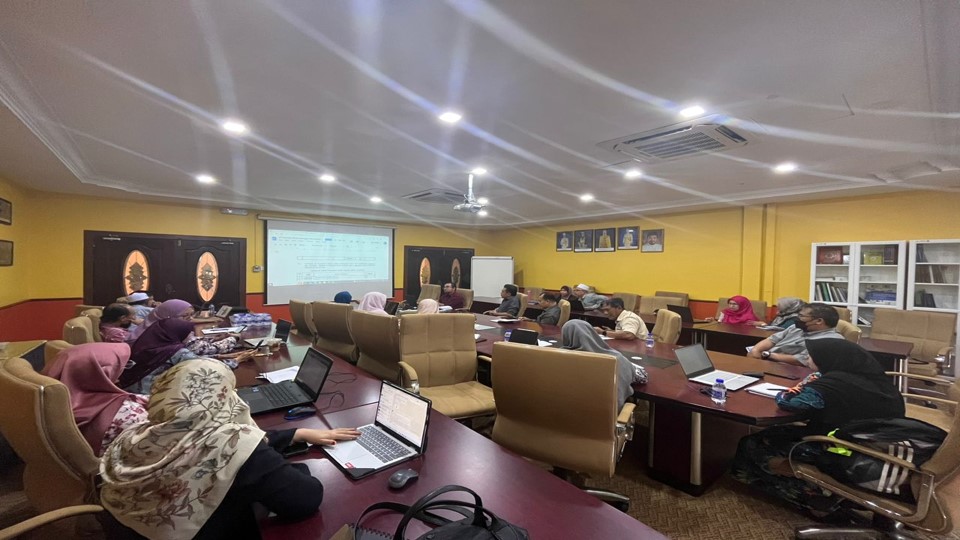
Information Systems Research Group (ISRG) is a dynamic and forward-thinking community dedicated to pushing the boundaries of decision support systems (DSS) and information systems (IS). We specialize in conducting cutting-edge research at the intersection of technology and decision-making, exploring innovative approaches to enhance organizational efficiency, strategic planning, and problem-solving. At ISRG, we foster an environment of collaboration and innovation, where experts in DSS and IS come together to tackle some of the most pressing challenges facing organizations today. Our research spans a wide range of topics, including data analytics, business intelligence, machine learning, and optimization techniques, all aimed at empowering decision-makers with actionable insights and tools to drive success. Whether you're a seasoned researcher, industry professional, or aspiring graduate student, ISRG offers a unique opportunity to contribute to groundbreaking research that shapes the future of decision support systems and information systems. Join us in our quest to revolutionize how organizations leverage technology to make informed decisions and drive sustainable growth.


Software Engineering Group (SEG) or SEG research group is officially established on April 4, 2015. This group consists of 9 Computer Science lecturers consisting of from one Professor, 6 Associate Professor and 2 senior lecturers The main mission of SEG is to realize research in the field of technology software for the industrial and public communities. To achieve this mission, three objectives have been outlined as follows: 1. Strengthen research groups focused on solving software problems industrial applications. 2. Improve the ability of the research group in producing techniques and technology in the field of software engineering. 3. Become a consulting expert in the field of software technology, especially in engineering software, information management systems, software quality and pervasive computing.
The Artificial Intelligence Group (AIG) is a collaborative community of multidisciplinary researchers dedicated to pushing the boundaries of artificial intelligence (AI). Our group focuses on advancing key areas such as machine learning, natural language processing, and computer vision. Through our collective expertise and innovative approaches, we aim to not only deepen our understanding of AI principles but also to develop practical solutions to complex real-world problems across various domains. AIG serves as a platform for fostering collaboration, sharing knowledge, and nurturing the next generation of AI researchers through mentorship and educational initiatives. At AIG, we are committed to conducting research that not only advances the state-of-the-art in AI but also addresses the ethical implications and societal impact of AI technologies. By promoting responsible AI development and deployment, we strive to ensure that AI systems are fair, transparent, and accountable. Our group actively engages in interdisciplinary collaborations, industry partnerships, and community outreach efforts to facilitate the translation of AI research into tangible solutions that benefit society. Through our collective efforts, AIG aims to be at the forefront of shaping the future of AI research and its transformative potential on a global scale.


The group, known as Applied Mathematics and Scientific Computing, serves as a unifying platform for researchers specializing in Applied Mathematics and Modeling. Its primary purpose is to facilitate collaboration, idea-sharing, and teamwork among all members, fostering a dynamic environment for research. By bringing together experts in various aspects of applied mathematics and scientific computing, the group aims to advance knowledge and innovation in these fields through collective effort and synergy.
The RIG with the name Statistical Methods and Machine Learning (STAMMAL) aims, among others, to conduct studies related to IR4.0 using the best statistical and machine learning methods; enhance productivity in publishing scientific materials in the field of statistics and also machine learning; and integrate expertise from various branches in the fields of statistics, mathematics, and computing, as well as their applications


Stochastic and Financial Analysis (SOFIA) research interest group focuses on exploring the intersection of stochastic processes and financial analysis, aiming to advance our understanding of complex financial systems and their dynamics. The group's research interests span a wide range of topics, including:
1. Stochastic modeling: Investigating mathematical models that capture the random nature of financial markets, asset prices, and economic variables. This includes diffusion processes, jump processes, and stochastic differential equations.
2. Risk management: Developing methods for quantifying and managing risk in financial portfolios and investment strategies. This involves analyzing the behavior of risk measures such as value-at-risk (VaR) and conditional value-at-risk (CVaR) under stochastic frameworks.
3. Asset pricing: Exploring theories and models for pricing financial assets under uncertainty, including the capital asset pricing model (CAPM), arbitrage pricing theory (APT), and stochastic discount factor models.
4. Portfolio optimization: Studying strategies for constructing optimal investment portfolios that maximize returns while controlling for risk under stochastic market conditions. This may involve dynamic asset allocation, mean-variance optimization, and robust portfolio optimization.
5. Financial derivatives: Investigating the pricing and hedging of derivative securities such as options, futures, and swaps using stochastic calculus techniques. This includes the development of models such as the Black-Scholes model and its extensions.
6. Computational methods: Developing numerical algorithms and simulation techniques for efficiently solving stochastic models and conducting empirical analyses of financial data. This includes Monte Carlo simulation, finite difference methods, and machine learning approaches.
Overall, SOFIA seeks to contribute to both theoretical advancements and practical applications in finance, with the goal of improving decision-making processes in investment management, risk assessment, and financial regulation.
One of three RIG in mathematics field.
Starts in 2015 and formerly known as Marine Management Science Research Group.
Focuses on the development of new methodologies and frameworks to model complex decision-making problems that arise in management sciences field.
Our members (currently 9) are experts in:
1. Optimization
2. Operations Research
3. Decision Science
4. Mathematical Modelling
